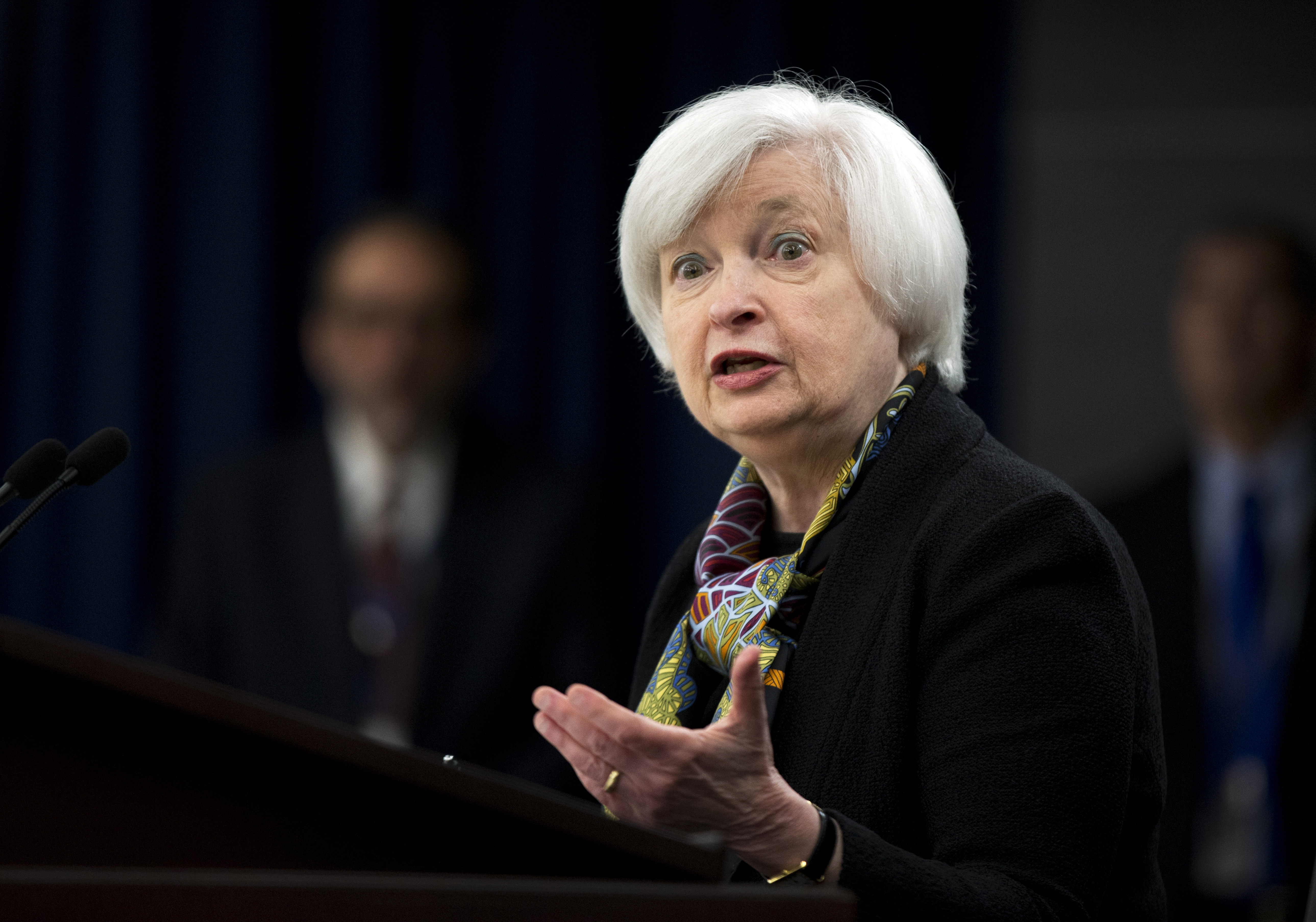Federal Reserve Chair Janet Yellen said Tuesday the central bank will move cautiously as it weighs interest rate hikes in light of a weak global economy and stubbornly low inflation, raising questions about whether policymakers will make a move this spring.
![Janet Yellen: Reading on U.S. cconomy somewhat mixed [video : 82384710]](http://videos.usatoday.net/Brightcove2/29906170001/2016/03/29906170001_4821760084001_4821664037001-vs.jpg?pubId=29906170001)
“Given the risks to the outlook, I consider it appropriate for the (Fed’s policymaking committee) to proceed cautiously in adjusting policy,” Yellen said in a speech to the Economic Club of New York.
Her remarks are consistent with the surprisingly wary posture the Fed adopted after a March 15-16 meeting in the wake of a rebound in financial markets and an uptick in inflation. That view was cast into doubt last week after Atlanta Fed President Dennis Lockhart and St. Louis Fed chief James Bullard provided generally upbeat appraisals of the economy and said policymakers could lift rates as early as an April 26-27 meeting.
Yellen, however, said the risks of raising rates too soon and derailing growth outweigh the hazards of the Fed needing to catch up to a stronger-than-expected economy, largely because policymakers have fewer weapons to jolt the economy with its benchmark rate still near zero. The Fed raised the rate in December for the first time in nine years.
"If economic conditions were to strengthen considerably more than currently expected, (the Fed) could readily raise (rates) to stabilize the economy,” Yellen said. “By contrast, if the expansion was to falter or if inflation was to remain stubbornly low (the Fed) would be able to provide only a modest degree of additional stimulus by cutting the federal funds rate back to near zero.”
If there is a downturn, Yellen said still has tools. It could assure markets that it will keep its benchmark rate lower for longer. And she said policymakers could resume bond purchases to hold down long-term rates. But she made no mention of negative interest rates - a strategy being pursued by the European Central Bank, Japan and several other countries -- possibly indicating she doesn't consider that a viable option.
Yellen acknowledged that the turbulence in financial markets early this year has eased recently, with stocks and oil prices rebounding and the dollar falling, developments that all bolster economic growth. But she added that “in other respects, economic and financial conditions remain less favorable than they did” in December. Overseas economic growth, she said, will be weaker than expected and U.S earnings forecasts have declined.
She said the impact of these developments on U.S. economic growth has been partly offset by expectations that the Fed will raise rates more gradually, pushing down long-term interest rates. Fed policymakers’ forecasts in March showed they expect just two quarter percentage point rate hikes this year, down from their estimate of four in December.
But Yellen said she was particularly concerned about the risks posed by China’s slowdown as it shifts to an economy driven by consumption rather than investment, noting that a bumpy transition still could disrupt markets. And she said an oil industry downturn that has been eased by rising prices could intensify again while both the dollar and corporate borrowing costs could renew their climb.
Yellen said such risks "are significant in terms of the U.S. outlook," adding, "ideally we want to get ahead of these developments" through interest-rate policy.
Meager inflation, she added, is expected to pick up as the effects of low oil prices and a strong dollar moderate. But she voiced particular concern about inflation expectations as measured by bonds and surveys, which are low and can impact inflation itself. “The decline in some indicators has heightened the risk” that inflation may not return to the Fed’s 2% annual target as rapidly as expected.
The Fed chair called economic reports this year "somewhat mixed," noting that strength in the labor market, consumer spending and housing has offset a sluggish global economy and low oil prices, which have hurt manufacturers' exports and business investment.
![AP YELLEN F FILE A USA DC [image : 82376244]](http://www.gannett-cdn.com/media/2016/03/29/USATODAY/USATODAY/635948447009940386-AP-Yellen.jpg)


